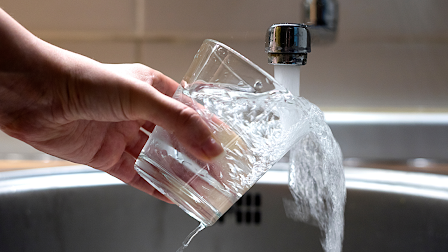Home Water Treatment System
So you had your well water tested and need a water
filtration or treatment system. What do you need to know about choosing a water
treatment system?
What water treatment system you need depends on what is in
your water. Systems are created to filter out specific material or chemicals
such as minerals or heavy metals. Even if you clearly have sediment in your
water, you should have it tested so you know exactly what and how much material
is in your water. With that being said let’s look at some common water
treatment systems.
Ion exchange System
Ion exchange systems use resin to replace either cations or
anions with sodium ions and chloride ions. They typically use sodium chloride
to provide these ions. This neutralizes the water. Salt brine is then used to
recharge the water. Ion exchange systems can be used to soften water and remove
certain chemicals depending on the resin used.
Water Filtration Systems
Water filtration systems are used to remove particulates and
materials like sand, rust, and viral contaminants. Filtration systems use a
physical filter and chemicals to clean water of contaminants. There many types
of filters and chemicals that can be used but the most commonly used material
is activated carbon.
Electrochemical Water Treatment System
Electrochemical water treatment systems use electricity to
remove contaminants from water. It is similar to the ion exchange system in
that it targets ionized material in the water. Instead of using resin, a
negatively charged electrode is placed inside, attracting those positively
charged ionic materials.
Each of these systems can be used to treat your water for a
number of things, and can vary drastically in price. That is why before you buy
any water treatment system, you should discuss your water issues with a water professional
who will suggest a system that will only treat what you need it to.




Comments
Post a Comment